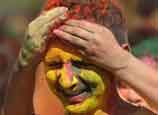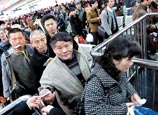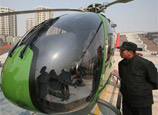
The final phase aims to set-up a nationwide database for hospitals and service-providers to share screening, diagnoses, and treatment statistics and protocols.
"Before we can treat autism, we need to do some basic work in the clinic," Dr. Wang Yi says. "China now doesn't have the simple statistics we need. There is no reliable or consistent data."
Wang predicts that 1.5 percent of the samples may turn out to indicate autism, far outpacing the official government statistic in 2005 of 1.1 per 1,000. In China, the prevalence of autism has been surging over the past few decades, says Jia Meixiang, an autism specialist with more than 20 years' experience at No 6 Hospital of Peking University.
Liu Jing, a child psychiatrist at the same hospital estimates that 30 percent of her new cases are referred with suspicions of autism. There are few clues and much debate as to the reason behind the rate increase, but Jia says despite the increasing prevalence and growing social awareness, many in the autism community are left to fight an uphill battle as some services still lag.
Over the past decade, with public schools often turning away autistic kids, dozens of similar private treatment centers have sprouted up all over China, most started by parents of an autistic son or daughter. Some are well-staffed and self-sufficient, but many are bare-bones operations with little government support and just enough financing to keep going. With the attention brought by the new survey, Dr. Wang Yi hopes that will change soon.
"That is out goal," Wang says.
"With clear data, the government will be able to better support this population."

















 Experience death, reflect life: Girl stages her own fake funeral
Experience death, reflect life: Girl stages her own fake funeral


![]()
